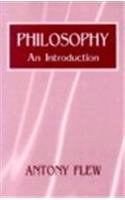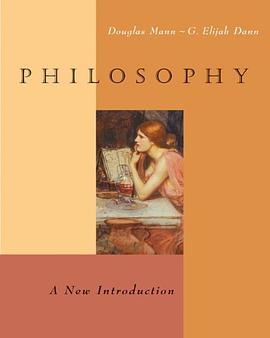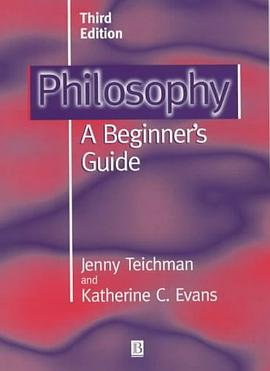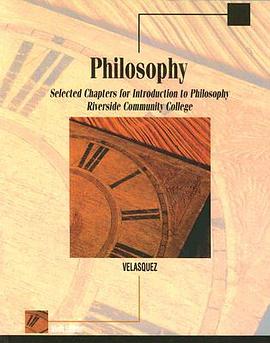

具体描述
Philosophers have almost always relegated the topic of revision to the sidelines of their discipline, if they have thought about it at all. This book contends that acts of revision are central and indispensable to the project of philosophizing and that philosophy should be construed essentially as a practice of rereading and rewriting. The book focuses chiefly on Heidegger's highly influential interpretation of Nietzsche, conducted in lectures during the 1930s and 1940s and published in 1961. The author closely analyzes the rhetorical means by which Heidegger repositions Nietzsche's thinking within a broad history of metaphysics, even as Heidegger positions his own reinterpretation as that history's more "proper" reading. The author argues that Heidegger's revisionist project recasts the philosophical text as paralipsis, a special kind of ironic statement that when "properly" received by the philosophical rereader, expresses what the text did not and could not say. The study of such paraliptical revisionism within the philosophical canon offers a new way of understanding the basic historicity of the philosophical text, a text that is critically indistinguishable from its own future history of interpretations. Philosophy itself is revision, a deeply historicist rereading practice, a continuous reappropriation of its own improper textual past. In addition to being the first book-length published study of Heidegger's interpretation of Nietzsche, the book also examines the work of Hans-Robert Jauss, Harold Bloom, and other critics of revision. In particular, Ralph Waldo Emerson's early essays on history, read both with and against Heidegger's analysis of metaphysics, demonstrate why the historical intervention achieved by revisionist reading is not only a formal and thematic alteration of the past, but also a rhetorical coercion of future interpretive tendencies. No philosophical reader is simply a user or victim of revisionist methods: in rereading philosophical pasts, the reader is the very mechanism by which such interpretive tendencies are first formed into problems or thoughts within the philosophical canon.
作者简介
目录信息
读后感
评分
评分
评分
评分
用户评价
这本书给我带来了一种久违的阅读体验,它完全不同于那些试图提供一套完整、自洽的哲学体系的著作。它更像是一场思想的“手术”,作者手持一把锋利的手术刀,毫不留情地剖开那些被传统哲学家视为神圣不可侵犯的教义。文字的节奏感非常强,时而如狂风骤雨般密集地抛出令人窒息的反驳,时而又转入一种近乎沉思的、缓慢的踱步,引导读者审视那些被忽略的边缘地带。我尤其对其中关于“价值判断的不可化约性”的论述印象深刻,作者以一种近乎文学化的笔触描绘了人类在面对纯粹的道德困境时,那种无处遁形的窘境。这使得这本书超越了纯粹的逻辑思辨,带有一种深刻的人文关怀,尽管这种关怀是以极其冷静和抽离的方式呈现的。它不会告诉你“应该”怎么想,但它会极其清晰地展示你“为什么”会这么想,以及这种“想”的结构是如何被历史和语言所塑造的。对于那些厌倦了陈词滥调的思辨者来说,这绝对是一剂猛药。
评分这本书最引人入胜的地方,在于它对于“哲学疲劳”的深刻洞察。作者似乎察觉到了当代知识分子内心深处对无休止的理论循环感到厌倦的普遍情绪,并试图用一种近乎“反智主义”的审慎态度来回应这种疲劳。然而,这种“反智”并非真的否定智力,而是一种对过度复杂化和过度体系化的警惕。他的语言风格在此刻显得尤为独特——它既保持着严谨的学术腔调,又时不时地流露出一种近乎讽刺的、带着戏谑感的轻盈。阅读过程中,我常常会心一笑,因为作者总能精准地捕捉到理论家们在试图建立宏大叙事时,那种微妙的自我欺骗和故作深沉。特别是他对“意义的终结”这一主题的处理,不是以悲观论调收场,而是以一种充满活力、邀请读者共同参与“重新命名”的姿态结束,让人在思想被彻底洗牌之后,感受到一种重生的自由感。
评分这本书的结构本身就是对其核心论点的最佳注脚。它拒绝遵循传统的“引言-主体-结论”的线性发展模式,而是呈现出一种螺旋上升、不断自我否定的复杂形态。每一个章节都像是对前一章节的修正与深化,充满了内在的张力与对话。我尤其欣赏作者处理“语境依赖性”问题的方式,他没有陷入相对主义的泥潭,而是通过建立一个精妙的“临界条件矩阵”,来界定不同哲学立场可以在何种程度上相互理解或相互排斥。这种处理方式展现了作者极高的理论驾驭能力——他既能看到差异的绝对性,又能洞察共性的可能性。对于那些希望看到哲学不仅仅是历史回顾或概念游戏,而是作为一种可以切实介入当下语境的实践工具的读者来说,这本书提供了令人振奋的范例。它不仅是挑战,更是一份邀请函,邀请你进入一个更诚实、更少粉饰的思考空间。
评分说实话,初读这本书时,我感到了一种近乎挫败的压力。作者的知识储备之广,简直令人汗颜,他信手拈来便能引用晦涩的古典文本、前沿的认知科学发现,以及被主流学术界边缘化的理论碎片,并将它们编织成一张密不透风的批判之网。这本书不是一本用来“放松阅读”的书籍,它要求读者拿出所有的智力储备与之抗衡。它更像是一次思想上的高强度耐力训练。我特别喜欢作者在论证过程中使用的那种辩证的跳跃性思维,他似乎总能从一个看似毫不相关的领域中提取出最致命的论据来击溃对手的堡垒。比如,他对笛卡尔式主体性的批判,并非依赖于拉康或福柯的既有框架,而是通过对某一特定时期欧洲科学仪器发展史的考察得出的结论,这种跨学科的穿透力令人叹服。它迫使我不断地停下来,查阅那些我以为早已遗忘的术语,并重新审视我所持有的知识体系的有效性。
评分翻开这本新书,我立刻被它那种直抵核心、毫不留情的解构态度所吸引。作者似乎对我们习以为常的那些哲学基石抱有一种近乎审美的怀疑,他不是简单地提出异议,而是像一个精密的考古学家,小心翼翼地剥开每一个概念的外壳,展示其内部的松动与裂痕。整本书的行文有一种冷峻的、几乎是学术禁欲主义的美感,每一个论证都经过了极其严苛的逻辑打磨,读起来就像是在攀登一座由纯粹思想构筑的冰山,每一步都需要全神贯注,稍有松懈便可能坠入概念的深渊。尤其是在关于本体论和认识论的交叉地带,作者开辟出了一条极具颠覆性的新路径,他巧妙地融合了现象学与后结构主义的某些洞见,但又拒绝落入任何既有的教条。我特别欣赏他处理“真理”这个老生常谈问题的视角——他没有简单地宣告真理的消亡,而是展示了“真理”是如何作为一种权力技术而被不断地建构和维护的。读完之后,我感觉自己对过去二十年来阅读过的所有哲学著作都产生了一种新的、更具批判性的眼光,这无疑是一次思想上的“大扫除”,令人痛快淋漓。
评分 评分 评分 评分 评分相关图书
本站所有内容均为互联网搜索引擎提供的公开搜索信息,本站不存储任何数据与内容,任何内容与数据均与本站无关,如有需要请联系相关搜索引擎包括但不限于百度,google,bing,sogou 等
© 2026 book.wenda123.org All Rights Reserved. 图书目录大全 版权所有



















